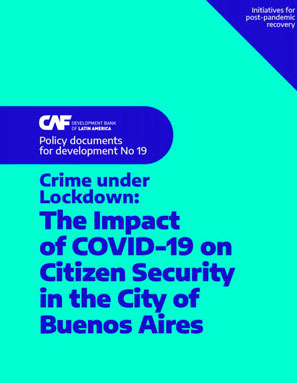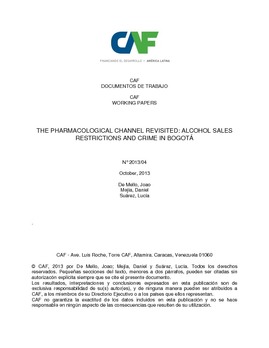Crime under Lockdown: The Impact of COVID-19 on Citizen Security in the City of Buenos Aires
Resumo
This paper studies the impact of the COVID-19 pandemic and the subsequent lockdown on criminal activity in the City of Buenos Aires, Argentina. We find a large, significant, robust, and immediate decline in crime following quarantine restrictions. We observe the effect on property crime reported to official agencies, police arrests, and crime reported in victimization surveys, but not in homicides. The decrease in criminal activity was greater in business and transportation areas, but still large in commercial and residential areas (including informal settlements). After the sharp and immediate fall, crime recovered but, as of November 2020, it did not reach its initial levels. The arrest data additionally allow us to measure the distance from the detainee’s address to the crime location. Crime became more local as mobility was restricted.
Assunto
País / Región
Data
2021-08-18Cite esta publicação
Item que pertence à coleção

Autor
Perez-Vincent, Santiago M.Schargrodsky, Ernesto
García Mejía, Mauricio
Items Relacionados
Workfare and crime: evidence for Argentina
This paper investigates the effect of introducing a massive workfare program on property crimes. In order to circumvent the endogeneity problem common ...
Police reform, training and crime: experimental evidence from colombia's plan cuadrantes
The Plan Nacional de Vigilancia Comunitaria por Cuadrantes (PNVCC) is a new police patrolling program introduced in the eight major cities of Colombia ...
The pharmacological channel revisited: alcohol sales restrictions and crime in Bogotá
Our goal in this paper is twofold: First, evaluate the impact on crime of the restriction of latenight alcohol sales in Bogotá; and second, quantify the ...




